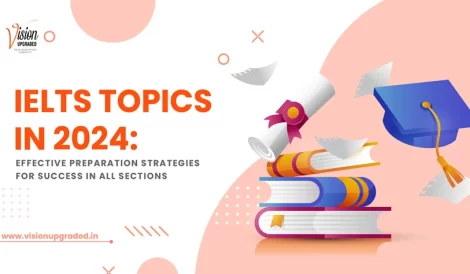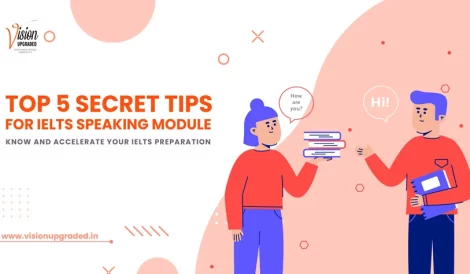Step-by-Step Secret Strategies to Your IELTS Preparation in 2024
The best way to improve your IELTS score is to understand exactly what the examiners want and give it to them. This is the main idea behind my teachings. However, you can’t just know this and expect a high score. You also need to improve your English and test skills. Practice tests are very important. You need to IELTS speaking practice, writing, listening, and reading for all parts of the test.
Below, we will look at the official marking criteria to help us understand what the examiners are looking for. By knowing this, you can focus your study and practice to meet their expectations, improving your chances of getting a higher score.
First, decide if you need to take the General Training (GT) or Academic IELTS test
Academic IELTS: This is for people who want to go to university or get certain jobs, like being a doctor. The listening and speaking parts are the same for both Academic and GT. The reading part has the same types of questions but different texts. Academic reading texts are on academic topics. For writing, Task 1 asks you to write a report about a graph, chart, process, or map. Task 2 is the same for both tests.
General Training (GT) IELTS: This is for people who want to move to an English-speaking country. The speaking and listening parts are the same as Academic. The reading texts are about everyday life in an English-speaking country. For writing, Task 1 asks you to write a letter. Task 2 is the same for both tests.
Knowing which test to take helps you prepare better and focus on the right materials.
Understand the test format
Understanding the test format is essential for effective preparation. The IELTS test has four parts: Listening, Reading, Speaking, and Writing. The Listening section lasts about 30 minutes and includes 40 questions across 4 sections. The Reading section is 60 minutes long with 40 questions divided into 3 sections. The Speaking section involves an 11-14 minute conversation with an examiner, divided into 3 parts. The Writing section varies between the Academic and General Training (GT) tests. For GT, the Writing section is 60 minutes long, with Task 1 requiring a letter and Task 2 an essay. The Academic test, also lasts 60 minutes, with Task 1 requiring a report on a graph, chart, map, or process, and Task 2 an essay. Understanding this format helps you know what to expect in each part of the test.
Set Realistic Goals
The important word here is ‘realistic’. There is a big difference between the score you want and the score you will get. Good preparation will help you do well and get the best score possible, but it cannot do miracles. It is important to aim for an achievable score based on your current level and the amount of time you have to prepare. This way, you can make steady progress and avoid disappointment.
Understand the Different Question Types
In the IELTS Reading and Listening sections, there are over 10 different types of questions. The Writing test also has more than 10 different kinds of questions. Knowing these different question types is very important because each one needs a different approach and strategy. For example, some questions might ask you to find specific information, while others might ask you to understand the main idea. In Writing, you might need to describe a graph or write an essay, each requiring a different style.
Understanding what each type of question is asking for and practising with them will give you a big advantage and help you score better.
Perfect Your IELTS Skills and Improve Your Vocabulary
To succeed in IELTS, you need to know many different strategies. For example, do you know how to write a strong introduction and conclusion? Can you develop your answers well in the speaking test? Do you know how to quickly find the correct information in the reading test?
Improving your vocabulary is also very important. Vocabulary makes up 25% of your total mark in the Speaking and Writing tests. It is also tested in the Reading and Listening tests. You need to practice all parts of the test, especially IELTS speaking practice.
By mastering these skills and building a strong vocabulary, you can significantly improve your chances of getting a high score on the IELTS test. Practice and preparation in these areas will give you the confidence and ability to perform well.
Practice English Every Day
To improve your English, practice a little every day. There are hundreds, if not thousands, of ways to do this, and it doesn’t have to be boring IELTS tests. My most successful students found something they enjoyed doing in English and did it regularly. For example, you can watch English movies, read English books, or talk with friends in English. The more you use English, the better your skills will become. You need to practice all parts of the test, especially IELTS speaking practice. Daily practice will increase your chances of getting the score you need on the IELTS test. Remember, the key is to make it fun and part of your daily routine.
Conclusion
Improving your IELTS score involves understanding what the examiners want and giving it to them. You need to practice all parts of the test, especially IELTS speaking practice. Decide if you need the General Training or Academic IELTS test to focus your preparation. Understand the test format and set realistic goals based on your current level. Know the different question types and use the right strategies for each. Perfect your skills and improve your vocabulary, as it is crucial for speaking and writing. Practice English every day in fun ways you enjoy. With these steps, you can confidently prepare and increase your chances of getting the score you need.




